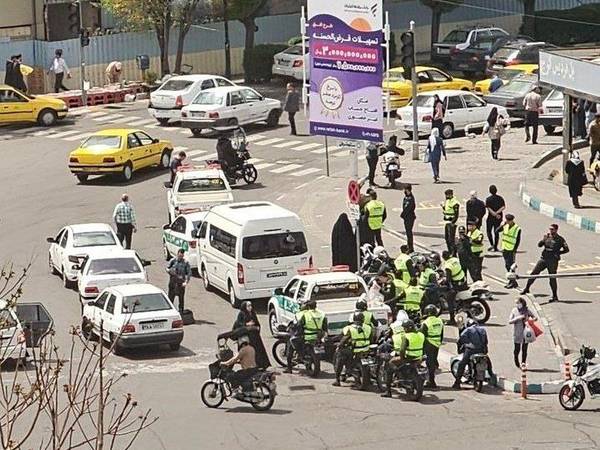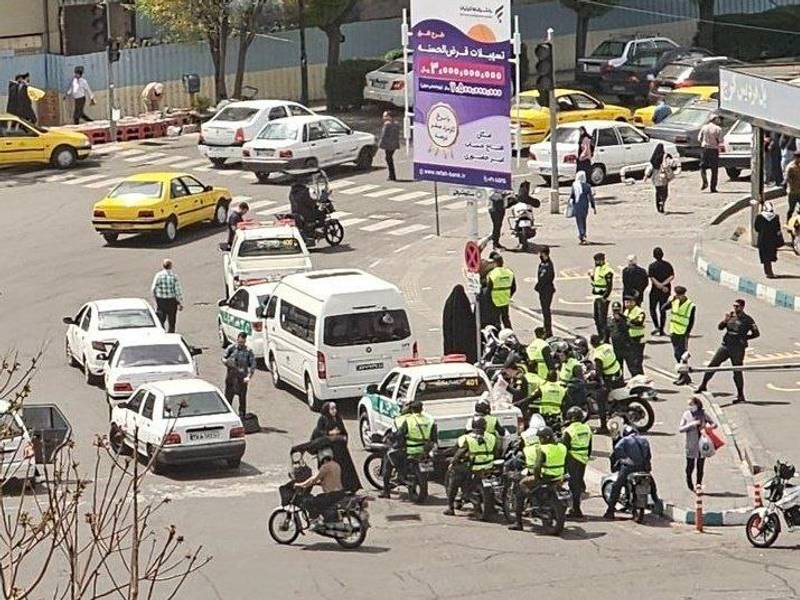Many believe that the current "state of war" with Israel may provide the Islamic Republic with an opportune window to more effectively deal with its ongoing domestic challenge of quashing dissent.
Some Iranian social media users believe that the authorities’ sudden intensification of the crackdown on women over the mandated hijab could be a deliberate attempt to divert attention from Tehran’s missile attacks on Israel.
Others suggest it may have been aimed at suppressing potential anti-war protests that could overshadow the regime’s claims of victory regarding the "hard revenge" operations planned against the Islamic Republic's archenemy – the "Zionist regime".
Omid Shams, a lawyer and director at the London-based NGO Justice for Iran, however, finds a direct correlation between the new wave of hijab crackdown and foreign conflict.
“There is a historical precedence to this,” he told Iran International, explaining that in the early days of the Islamic Revolution, when war with Iraq began in 1980, Iran's then-ruler Ruhollah Khomeini similarly found the time right to realize his wish to force women into wearing the hijab.
Woman resisting arrest by morality police in Rasht in northern Iran
“In a state of emergency such as war, governments are empowered to act against the civil society and to create an atmosphere of fear to weaken it,” Shams said. “I think Khamenei took advantage of the current circumstances to do something that could have sparked a strong reaction from the public if he had done it in normal circumstances, when the society could focus on the issue and react to it without being distracted by other problems such as this stupidity that is threatening the existence of the country now.”
Hours before Saturday’s IRGC’s missile and drone attack on Israel, Iran’s so-called morality police waged a full-on war against unveiled women. Iranian authorities have also begun a crackdown on media and social media activists.
The police force’s infamous “guidance patrols”, often referred to as the “morality police”, have returned to the streets, Tehran’s metro stations and other cities across the country in full force, to enforce the Islamic dress code.
Woman being dragged by morality police to their van in eastern Tehran
The patrols had largely vanished from the streets after the death of the 22-year-old Mahsa Jina Amini in their custody, which sparked widespread and months-long protests across the country. This year, a UN report found the Iranian authorities responsible for the physical violence in detention that led to Amini’s death.
Since Saturday, the patrols consisting of male and female uniformed police and plainclothes agents, have arrested at least dozens of women violently as videos and reports on social media attest.
On Tuesday Dina Ghalibaf, a 24-year-old post-graduate student of political science and journalist, was arrested at her home in Tehran for describing in a tweet her own recent encounter with the police for hijab.
In her post, Ghalibaf said she was refused entry to the subway because she was unveiled. When she insisted that she had a right to use the metro, she was tasered and violently taken to an office. There, she said, one of the police officers who constantly mocked and insulted women caressed her face tantalizingly, while she was in handcuffs.
To enforce the hijab, some universities now require women to pass through gates equipped with facial recognition technology. They are prevented from entering if their appearance does not comply with the Islamic dress code.
Authorities have also threatened restaurants and all other businesses with closure if they serve unveiled women or offer them services.
Female officers dragging a woman to their van
Iran International has also learned that the intelligence organization of the Islamic Revolutionary Guards (IRGC), known as SAS, has ordered journalists and activists not to post any content critical of the attack on Israel on social media platforms, as this would be considered as “endangering the psychological security of the society”, and to remove anything that has already been posted.
Mahdieh Golrou, a Sweden-based political activist, told Iran International TV that on Saturday the Supreme National Security Council summoned managing directors of newspapers and news websites and told them they were not allowed to criticize the IRGC’s operations against Israel.
According to Golrou, managing directors were also told they would be held responsible and punished if any of their journalists did so privately.
Authorities have accordingly prosecuted several journalists, social media activists and newspapers including prominent reformist columnist Abbas Abdi and the reformist outlet Etemad for criticizing the conflict and escalation or warning about the consequences of a war.
These actions by Iranian authorities suggest a "state of war and a state of emergency pursuant to it," noted an article published by the reformist Jamaran news website on Monday. The statement criticized the government's attempts to curb all criticism and to force individuals and media outlets to parrot the official line on the matter.

